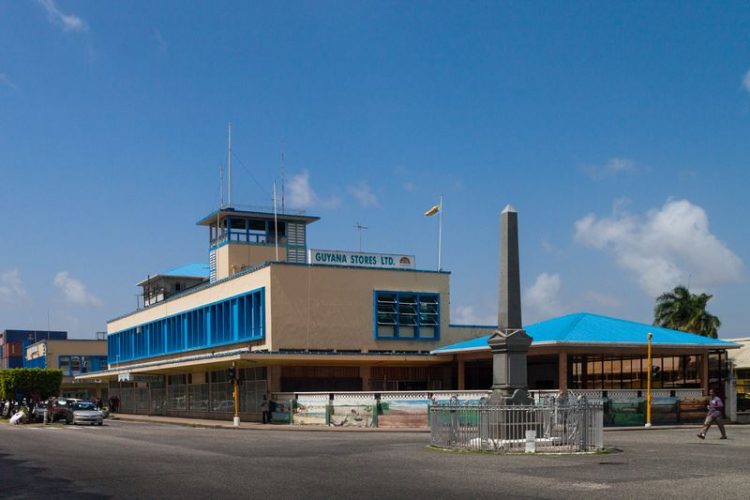Acting Chief Justice Roxane George has awarded a US$2 million judgment to the government holding company, the National Industrial and Commercial Investments Limited (NICIL), in a lawsuit that was initiated to secure the outstanding balance for the acquisition of Guyana Stores Limited just over a decade ago by the Tony Yassin-led Royal Investments Incorporated (RI).
The judge, who also dismissed a counterclaim filed by RI, has also awarded NICIL interest on the sum – to be calculated at the US Treasury Bill rate from October 1, 2001 until fully paid – in addition to $5 million in costs.
NICIL moved to the court to seek the outstanding balance of US$2 million after RI paid US$4 million of an agreed US$6 million for the purchase of 70 million shares or 70% of the share capital of Guyana Stores Limited (GSL) and defaulted on the remainder.

In her December 17th judgment, seen by Stabroek News, the judge noted that RI had contended that it was not liable to NICIL and had counterclaimed for damages for misrepresentation, fraud and deceit as regards claimed non-disclosures and misrepresentations as to the property being sold, the continuation of agency agreements, the payment of a dividend, the execution of a promissory note, and other operational matters that purportedly negatively affected GSL. RI also claimed there was failure to fulfil an agreement that ministries and other agencies of the government continue purchasing from it, which was also to its disadvantage.
However, the judge found that RI was well aware of most, if not all, of the issues that it complained of in its defence and counterclaim. “I therefore hold that RI has not proven that there was any misrepresentation, fraud or deceit on the part of NICIL that would absolve RI from paying the balance of the purchase price in the sum of $2 million US with interest… or entitle it to damages,” she held before later concluding that there was nothing in the evidence to suggest fraud in any shape or form.
Yassin, who testified for RI, she noted, “tried to portray himself as a naïve businessman,” although he was dealing with a US$6 million transaction and his company, Salmon Corporation, had been part of the RI consortium that was involved in the initial negotiations for the purchase of the shares. “Mr. Yassin tried to deflect from the fact that he was always a part of RI and I find that this is the flaw in the case for RI,” Justice George found.

On the latter point, the judge observed that while the transaction was between NICIL and RI – and not NICIL and Yassin – throughout his evidence he kept “personalising the transaction, e.g. saying he put in his bid,” and while he was aware of a previous negotiation between NICIL and RI and its termination, he later sought to suggest that he had been kept in the dark by Reaz Khan, who had been the principal negotiator for RI before him.
“It is no concern to anyone outside of RI, moreso NICIL, that Mr. Yassin and Mr. Khan were not getting along as Mr. Yassin claimed, and that Mr. Khan had never had any discussion with him regarding his concerns about the negotiations. The fact remains Mr. Yassin took over RI and according to the evidence he paid Mr. Khan $600,000 US for his shares in the company,” the judge noted. “Nothing nor anyone forced Mr. Yassin to take over RI and enter into or conclude negotiations given the three month time frame he said Mr. [Winston] Brassington told him had been given by Cabinet to conclude the agreement.”
Justice George found Brassington to be a “much more credible witness” than Yassin, whom she described as “a vacillating witness.” Yassin admitted that during his negotiations he had the benefit of advice of Senior Counsel Edward Luckhoo and attorney Christopher Ram on financial aspects of the deal but did not think he should not proceed and he went ahead and signed the agreement of his own free will. At the same time, RI’s bid proposal referred to the weaknesses of GSL, including its low return on investment, unimpressive approach to businesses, poor purchasing policies, poor market policies, and a weak, inexperienced middle-management, among other things. “Given the recognition of these weaknesses, the claims made by Mr. Yassin regarding the projected stellar profitability of GSL as calculated by him appear implausible and impossible. They do appear contrived to get out of the obligation of RI to pay the balance on the purchase price,” the judge found, before adding that despite recogising the weaknesses, RI bid US$6M for the 70% of shares.






